NEWS RELEASE – Myanmar: UN Human Rights Office deeply concerned by new NGO law

BANGKOK (28 November 2022) – The UN Human Rights Office for South-East Asia (OHCHR) is deeply concerned about the potential negative impact on civic space and human rights of new rules regulating the registration of non-profit organizations in Myanmar.
On 28 October, the military’s so-called State Administration Council unilaterally imposed a text making registration compulsory for both national and international non-governmental organizations and associations. In purportedly repealing the 2014 Association Registration Law, these new rules introduce criminal penalties for organizations who fail to comply with punishments up to five years of imprisonment.
Since the attempted coup in February 2021 and in pursuance of their “four-cuts” strategy, the military has put in place numerous measures, including internet shutdowns in over 20 townships, eroding civic space and preventing the exercise of fundamental rights and freedom, such as freedoms of expression and association.
The military has used the national legal framework and the judiciary to crush any opposition and these new provisions add to the legal arsenal at their disposal to exert authoritarian control over Myanmar.
“Civic space has been decimated in the country already due to the military’s actions, particularly its systematic harassment, arrest, and prosecution of anyone who opposed their coup,” said James Rodehaver, Chief of the OHCHR Myanmar Team.
“These new rules could greatly diminish what operational space is left for civic organizations to deliver essential goods and services to a population that is struggling to survive.”
In the context of ongoing fighting throughout the country, military decisions and actions have severely restricted humanitarian access limiting efforts to reach some of the estimated 1.4 million internally displaced people and millions of others affected by crisis with life-saving humanitarian aid.
Local civil society and grassroot organizations have played an increasingly crucial role in the provision of humanitarian assistance to those in need, particularly to food, health care, shelter, safe drinking water, and sanitation facilities.
Registration obligations stemming from this new military text may jeopardize all this and expose over a million people, including children and the elderly, to life-threatening risks, said Rodehaver.
“These new requirements and penalties are likely to make it more difficult for legitimate, dedicated civil society groups to get desperately needed support to those who need it most,” Rodehaver said.
“The military has an obligation to the people of Myanmar to facilitate the work of civil society and to ensure unimpeded access to communities in desperate need of assistance, not target them through bureaucratic harassment or threaten them with prosecution.”
The UN Human Rights Office calls on the military to meet their obligations under international human rights law and international humanitarian law, particularly to enhance protection of civilians, release political prisoners, and restore a political system representative of the will of the people of Myanmar.
ENDS
For more information and media requests, please contact: in Bangkok, Wannaporn Samutassadong (+66 65 986 0810 / wannaporn.samutassadong@un.org).
Tag and share – Twitter: @OHCHRAsia, Facebook: @OHCHRAsia and Instagram: @ohchr_asia
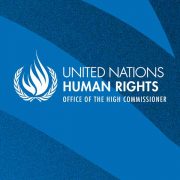 OHCHR
OHCHR 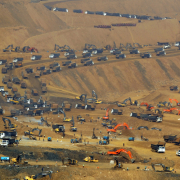 EPA
EPA 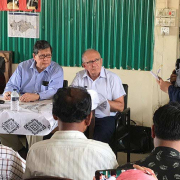
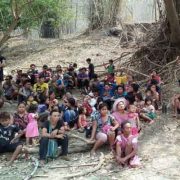 EPA-EFE
EPA-EFE 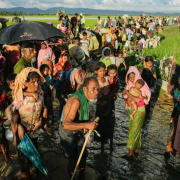 EPA
EPA 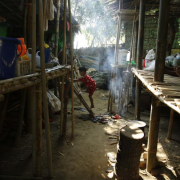 EPA
EPA